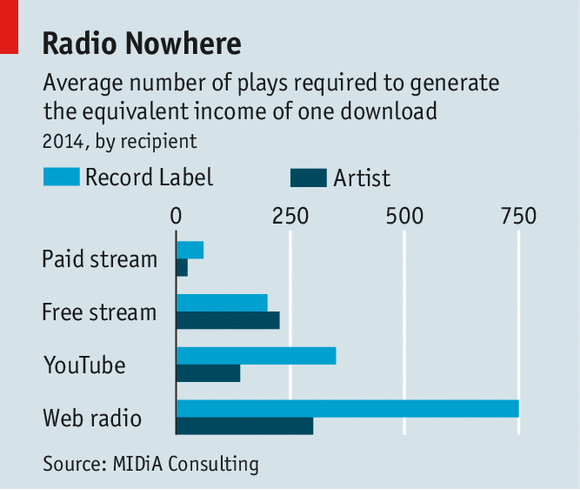Let me begin by letting you know that this post is not about Justin Bieber, it is simply a clever title. The post is about the streaming industry.
With the development of the internet, consumers are now able to access a variety of media content such as movies and songs for free. But there is a catch! Most “now playing” Hollywood movies or recently released soundtracks can be downloaded but it is illegal. It is my belief that this development has caused singers and movie producers to understand that the willingness to pay of consumers is greatly reduced. When a consumer can illegally download a song or movie with ease, they are not likely to pay upwards of 25$ for a CD or movie ticket/DVD.
This is where streaming services come in. Specifically in the music industry, services such as YouTube, Pandora, and Spotify have become popular and have been embraced by the singers and song writers. why? Because they know that they should settle for less revenue per song, but a greater volume of legal purchases. The industry is transformed into a model that matches the willingness to pay of the consumers.
Highlighted by The Economist article “Beliebing in Streaming”, streaming has its upsides and downsides but is a good transition into a popular legal commerce. Specifically, it mentions that for the singers and song writers it is not a bad deal at all. Pay-per-month streaming services such as Spotify are extremely popular and pay close to $150 annually to song owners annually per subscriber, which is more than the average American spends on music.
In conclusion, I think the streaming of music as well as movies (Netflix) is going to be the only way to develop a legal market that respects copyright laws. As technology evolves, industries must change to accommodate for the loss of value to consumers. In the case of CD albums, it may have been valued at $25+ a few years ago but today when any song is available on Youtube for free, it is no longer worth that much to consumers.

 Follow
Follow
